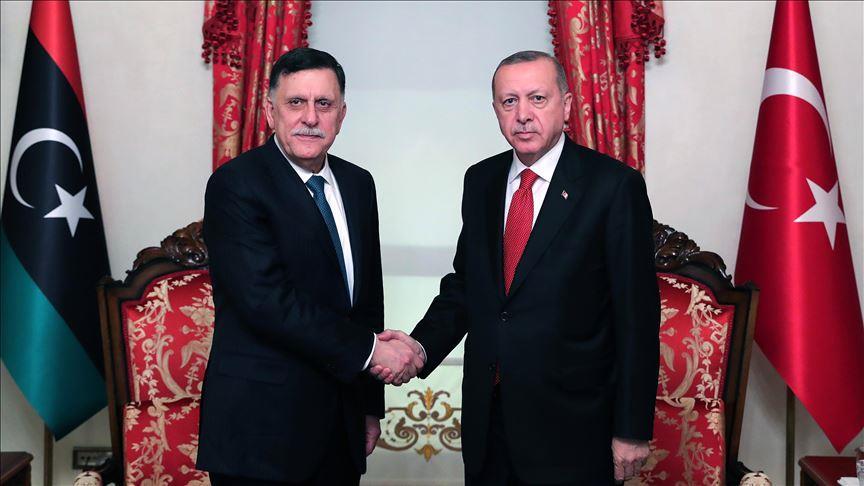The bilateral maritime deal between Turkey and Libya's Tripoli-based Government of National Accord (GNA) is an international agreement based on legitimate legal grounds, according to experts.
Signed on Nov. 27 between Libya and Turkey, the pact laying out both countries' marine jurisdictions rejects unilateral and illegal activities by other regional countries and international firms and aims to protect the rights of both countries in line with the international law of the sea.
The agreement is a logical and creative countermeasure in finding a concrete solution in the East Mediterranean, Senior Associate John Bowlus of Kadir Has University Energy and Sustainable Development Center told Anadolu Agency.
Bowlus said Greece may question its legality, but he said that, “Greece itself has brazenly disregarded Turkey’s rights according to international maritime law for years.”
On Nov. 6, Greece has ordered the expulsion of the Libyan ambassador in an escalation of a dispute over a deal signed between Libya’s UN-supported government and Turkey on maritime boundaries in the Mediterranean.
Bowlus said de-escalating tensions in the region would only succeed through diplomatic agreements. He underlined that expelling an ambassador would have long-term consequences and would not provide a sustainable solution in the region.
- Combating with overfishing through this pact
This agreement is very important not only within the political framework but also in fisheries access arrangements, Board Member Suha Cubukoglu of Koc University Maritime Forum Sea-borne Energy Advisory said.
According to Cubukoglu, the Exclusive Economic Zones (EEZ) are areas of the sea, generally extending 200 nautical miles from a country’s coastline that are reserved for the respective country under the United Nations Convention on the Law of the Sea (UNCLOS).
He added that the coastal countries retain special rights to exploration and use of marine resources, but the water’s surface remains part of international territory. Some economically important fish stocks pervade the boundaries of multiple countries’ EEZs, which causes tension between the various countries claiming rights to their population.
'As Turkey does not declare its EEZ, boats from other Mediterranean countries such as Egypt, Italy and Spain can fish around Turkish coasts causing fish stocks to significantly fall. As a result of the agreement made with Libya, Turkey will have rights to combat illegal, unreported and unregulated fishing until the Crete coastline, to prevent the economic loss and to protect biodiversity in the East Mediterranean sea,' he said.
He said Turkey would play a key role in the region to adopt and implement measures against overfishing. This also includes prohibiting harmful subsidies that contribute to overfishing by working together with effective organizations such as The International Commission for the Conservation of Atlantic Tunas (ICCAT) after the agreement is filed with the United Nations.
By Elif Selin Calik
Anadolu Agency
energy@aa.com.tr


